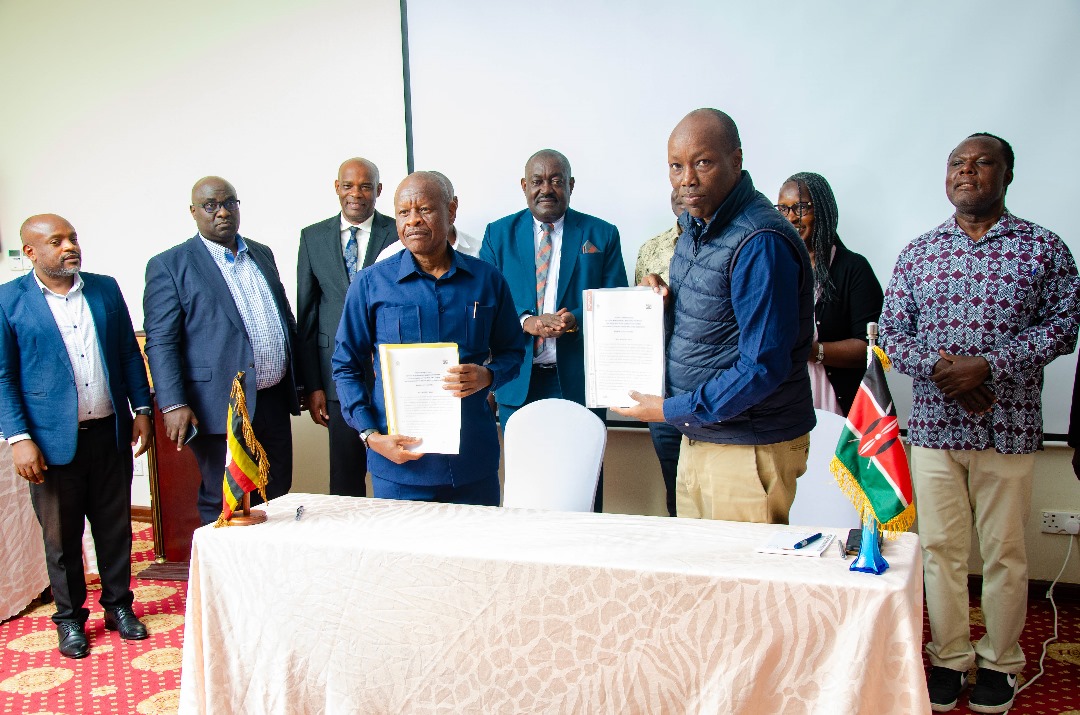Uganda and Kenya Agree on Concrete Measures to Eliminate Trade Barriers and Boost Regional Integration

Uganda and Kenya have taken a significant step toward strengthening regional integration by agreeing on a set of practical measures to eliminate trade barriers, ease congestion at borders, and improve infrastructure along key trade routes.
During a high-level ministerial meeting, both governments committed to treating goods traded between the two countries as transfers rather than exports and imports, a move expected to cut bureaucracy, reduce costs, and improve the flow of goods across their shared borders.
Tackling Border Congestion
Trade between Uganda and Kenya, the region’s largest economies, often faces long delays at the busy Malaba and Busia border points, where trucks can queue for days. To address this, the two countries agreed to:
- Ensure clearance of trucks within 24 hours at both borders
- Maintain queues at Malaba at less than 4 kilometers
- Keep queues at Busia below 500 meters
- Implement 24/7 border operations to reduce downtime
These measures are expected to save traders millions of shillings in demurrage costs while increasing efficiency in cross-border trade.
Infrastructure Improvements
The two countries also committed to investing in critical infrastructure upgrades to support smooth trade. Key agreements include:
- Road and bridge improvements at major crossing points
- Fast-tracking completion of the Suam One-Stop Border Post (OSBP) on the Kenyan side
- Upgrading the Lwakhakha road and installing modern scanners to enhance security and speed up inspections
Uganda also pledged to tackle delays caused by the Malaba weighbridge, which has long been a bottleneck for truck drivers.
Strengthening Coordination
To ensure accountability and quick problem-solving, Uganda and Kenya will operationalize Joint Border Committees where officials from both sides will work together daily to resolve challenges as they arise. In addition, a joint technical committee will closely monitor the implementation of trade facilitation measures.
Importantly, both governments emphasized the need for continuous dialogue with the private sector to ensure that policies align with the realities faced by traders, transporters, and manufacturers.
A Boost for Regional Integration
The new commitments come at a time when the East African Community (EAC) is pushing member states to eliminate non-tariff barriers and create a seamless trade environment. With Uganda and Kenya serving as key transit hubs for goods moving across the region, from Mombasa port to landlocked countries like Rwanda, South Sudan, and the DRC, the success of these measures will have a major impact on regional trade growth.
If fully implemented, the agreements are expected to lower the cost of doing business, improve competitiveness, and strengthen economic ties between Uganda and Kenya, setting a positive example for wider EAC integration.
Latest News
Stanbic Bank Supports Life-saving Maternal care
Stanbic Bank maternal healthcare support Uganda is making a meaningful impact through...
Uganda’s Economy at Inflection Point
Uganda’s economy at inflection point — this was the key message from...
Pamela Turyatunga’s Jasiri Win: What It Means for Absa Bank Uganda and the Future of Sustainability Leadership
From Recognition to Reinforcement: Pamela Turyatunga’s Jasiri Award Signals Absa Uganda’s Sustainability...
Stanbic Names Oigara CEO as Mweheire Steps Down
Stanbic names Oigara CEO in a significant leadership transition that signals the...















